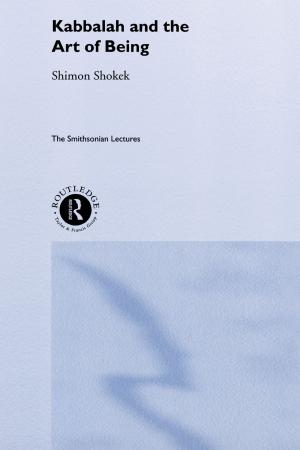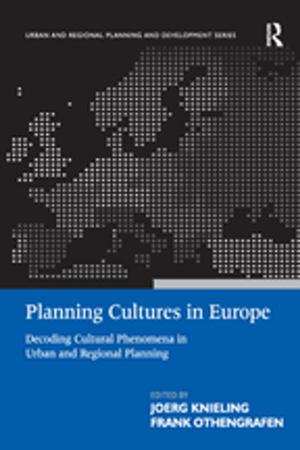Dorothy Wordsworth's Ecology
Fiction & Literature, Literary Theory & Criticism, Women Authors, British| Author: | Kenneth Cervelli | ISBN: | 9781135861087 |
| Publisher: | Taylor and Francis | Publication: | February 27, 2007 |
| Imprint: | Routledge | Language: | English |
| Author: | Kenneth Cervelli |
| ISBN: | 9781135861087 |
| Publisher: | Taylor and Francis |
| Publication: | February 27, 2007 |
| Imprint: | Routledge |
| Language: | English |
Dorothy Wordsworth has a unique place in literary studies. Notoriously self-effacing, she assiduously eschewed publication, yet in her lifetime, her journals inspired William to write some of his best-known poems. Memorably depicting daily life in a particular environment (most famously, Grasmere), these journals have proven especially useful for readers wanting a more intimate glimpse of arguably the most important poet of the Romantic period.
With the rise of women’s studies in the 1980s, however, came a shift in critical perspective. Scholars such as Margaret Homans and Susan Levin revaluated Dorothy’s work on its own terms, as well as in relation to other female writers of the eighteenth and nineteenth centuries. Part of a larger shift in the academy, feminist-oriented analyses of Dorothy’s writings take their place alongside other critical approaches emerging in the 1980s and into the next decade.
One such approach, ecocriticism, closely parallels Dorothy’s changing critical fortunes in the mid-to-late 1980s. Curiously, however, the major ecocritical investigations of the Romantic period all but ignore Dorothy’s work while at the same time emphasizing the relationship between ecocriticism and feminism. The present study situates Dorothy in an ongoing ecocritical dialogue through an analysis of her prose and poetry in relation to the environments that inspired it.
Dorothy Wordsworth has a unique place in literary studies. Notoriously self-effacing, she assiduously eschewed publication, yet in her lifetime, her journals inspired William to write some of his best-known poems. Memorably depicting daily life in a particular environment (most famously, Grasmere), these journals have proven especially useful for readers wanting a more intimate glimpse of arguably the most important poet of the Romantic period.
With the rise of women’s studies in the 1980s, however, came a shift in critical perspective. Scholars such as Margaret Homans and Susan Levin revaluated Dorothy’s work on its own terms, as well as in relation to other female writers of the eighteenth and nineteenth centuries. Part of a larger shift in the academy, feminist-oriented analyses of Dorothy’s writings take their place alongside other critical approaches emerging in the 1980s and into the next decade.
One such approach, ecocriticism, closely parallels Dorothy’s changing critical fortunes in the mid-to-late 1980s. Curiously, however, the major ecocritical investigations of the Romantic period all but ignore Dorothy’s work while at the same time emphasizing the relationship between ecocriticism and feminism. The present study situates Dorothy in an ongoing ecocritical dialogue through an analysis of her prose and poetry in relation to the environments that inspired it.















